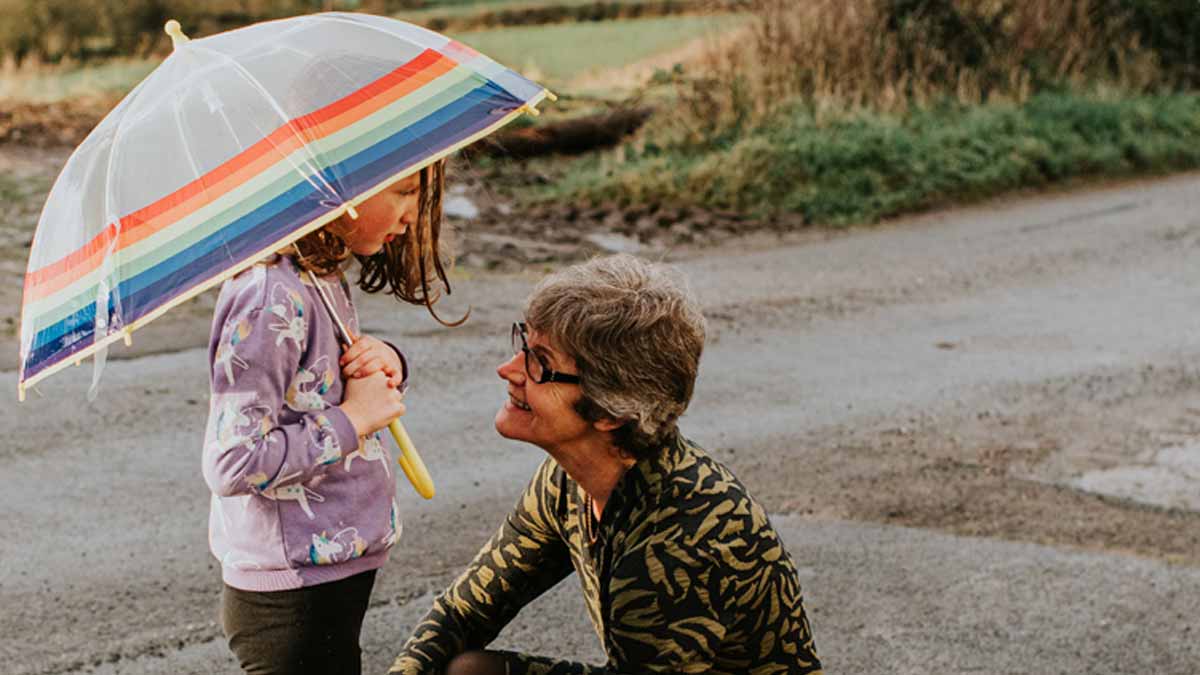A quiet shift is reshaping family life, and it starts with the elders who hold the room together. Today, grandparents bring emotional intelligence to everyday moments, and they change how support feels at home. They listen more, react less, and help repair tension with care. The goal stays simple yet strong: protect bonds across generations while allowing parents to lead, children to grow, and love to stay steady. Respect grows, and the home breathes a little easier.
How grandparents build a secure second circle
Emotional strength begins with clarity of role, because wisdom lands best when it does not compete with parenting. Dr. Robyn Koslowitz describes a “second circle” that surrounds the family and lowers tension while raising security. The idea feels practical, and it helps older adults show up with warmth, patience, and presence rather than pressure.
That role also rests on curiosity. Dr. Erica Kalkut notes that elders carry deep knowledge, yet they still ask questions and notice new interests. They share life lessons with humility, and then they respect autonomy. This stance builds trust and, as weeks pass, makes room for deeper connection without mixed messages or power struggles.
The baseline includes emotional literacy. Amy Dykstra defines emotional strength as feeling and expressing emotions in a healthy way, then bouncing back with resilience. People practice, because skills grow with use. So grandmothers and grandfathers learn their signals, name feelings, and choose coping tools like breathwork, walks, or a calm pause when stress rises. Here, grandparents stay learners.
Advice that honors autonomy
Guidance lands well when permission comes first. Unsolicited advice can feel like judgment, and judgment shuts doors. Emotionally aware elders check in and ask, “Would feedback help right now?” The question keeps conversation open, and it models consent. Parents feel respected, while children watch adults set fair rules for hard talks.
Preferences stay central, and that protects harmony. Families agree on bedtime routines, on screen rules, and on words that soothe when tears arrive. Advice then supports, not replaces, those choices. One clear boundary goes far, and it sets the tone for the day. In that space, grandparents still mentor, yet they avoid steering the ship.
Open talk continues after tough moments. Adults debrief without blame, and trust grows because feelings get room. The habit seems small, yet it stacks into safety. Children learn that missteps lead to repair, so they share more, not less. Parents and elders then move as a team, and home life keeps its steady rhythm.
Boundaries that help grandparents strengthen trust
Healthy boundaries teach children how respect looks in real time. When a child says no to a hug, consent matters, and the adult steps back. This choice signals value, and it reduces conflict later. According to psychologist Lorraine Madden, validation helps kids feel heard, which keeps their nervous system calmer during big feelings.
Validation works best without undermining parents. Dr. Koslowitz recommends empathy first, rules second: “I know that’s disappointing, and let’s choose something your dad approved.” The child stays seen, and the family structure remains clear. Routines then do their quiet work, because predictability reduces stress and makes bedtime, meals, and goodbyes easier. Here, grandparents keep trust intact.
The same boundary sense applies to time and energy. Elders protect their capacity, so support remains reliable. They say yes to what they can sustain, and they say no without guilt. That honesty builds a strong floor beneath the relationship, and children learn that clear limits bring safety, not distance, when emotions run high.
Calm self-management and healthy repair
Big feelings visit every home, and adults shape how kids handle them. Nostalgia, regret, or fatigue can trigger sharp reactions, and self-awareness helps catch them early. Elders notice the rise, choose a pause, and settle their breath. That simple reset protects connection and turns messy moments into practice reps for resilience.
Modeling failure skills matters just as much. Plans fall apart, toys break, and tempers flash, so caregivers show repair in action. They try again, they problem-solve, and they apologize when needed. Children copy those steps, and confidence grows because recovery now feels normal. In time, setbacks stop feeling like verdicts and start looking like lessons.
Repair also includes gentle language. Adults avoid shame, because shame freezes learning. Clear words name the issue and the next step: “We knocked over the blocks, so let’s rebuild together.” The tone stays warm, and the path stays specific. In that process, grandparents prove that steadiness beats perfection when life gets loud.
Routines, teamwork, and steady presence
Predictable routines support calm bodies and calmer nights. Parents understand their child’s rhythms, and stable schedules help behavior and sleep. The Thanksgiving example rings true: when bedtime slips, mornings wobble, so leaving early often protects everyone. Respecting that call communicates trust and places the family’s needs ahead of plans, consistently.
Teamwork removes mixed signals. Before babysitting, adults align on discipline, snacks, and time outdoors. A brief check-in prevents friction later, and kids feel the unity right away. Clear agreements channel energy, and daily life moves easier. As stress drops, focus returns to play, stories, and small traditions that define a loving home.
Presence does the quiet heavy lifting. Children notice who shows up, listens closely, and remembers what matters to them. Consistency tells a soothing story, and that story powers secure attachment. With time, curiosity deepens, skills grow, and confidence spreads across school, friendships, and sports. In that everyday flow, grandparents anchor hope.
Why steady empathy from elders lifts whole families over time
Strong families grow from small, repeated choices, and the pattern often begins with one wise adult. When grandparents respect autonomy and model calm repair, they keep love and order on the same page. Children feel safe, parents feel backed, and elders feel useful. The cycle strengthens, and three generations move forward together with patience, humor, and steady grace. And because routines support rest, everyone shows up kinder the next day.
